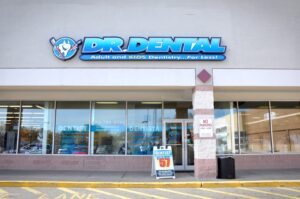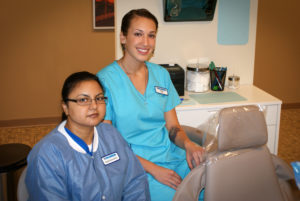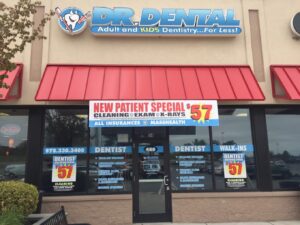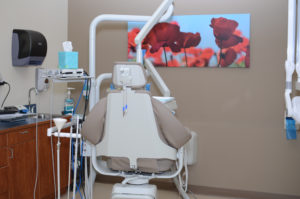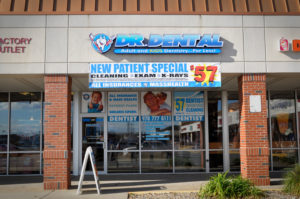Home » Services
Any mouth. Any age.
Any mouth. Any age.
From tooth emergencies to cleanings, implants, root canals, and even braces or invisilign–Dr. Dental has the whole family covered. Take care of the whole family’s dental needs all in one convenient, affordable, and friendly place.
Dental and Orthodontic Services
At Dr. Dental’s offices, we’re all about giving our patients great smiles. We’re proud to offer braces at select Dr. Dental locations throughout New England. Approximately 50% of Americans have some type of teeth or jaw misalignment, and these issues can impact everything from eating to speaking and – you guessed it – smiling! Stop by our offices today or schedule your appointment online for an initial consultation to see if braces are right for you. From there, our dental and orthodontic care experts will map out an effective, affordable plan of action to get your smile back on track!
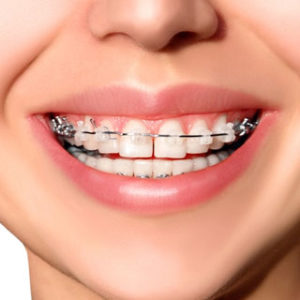
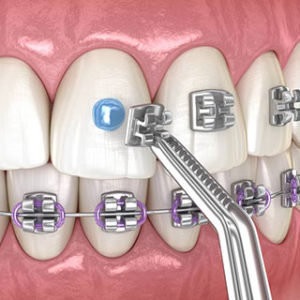
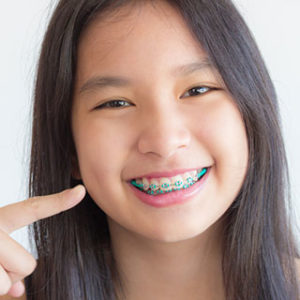
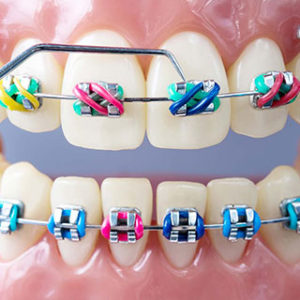
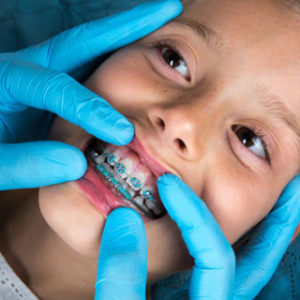
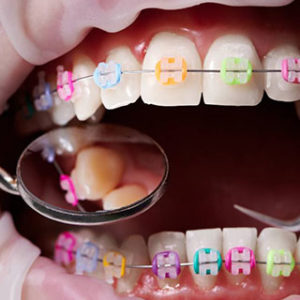






When it comes to having a cavity filled, it’s important to know that you have the right to decide, after consultation with your dentist, what treatments and materials are used for your dental care. Your dentist considers materials to use on an individualized basis, taking into account the size and location of your cavity. Cosmetic considerations, how long the filling could last, insurance coverage and out of pocket costs are some other factors you might want to consider. We encourage you to talk with your dentist so that together you may choose the material that’s right for you.
Here are some common dental filling options:
❖ Composite resins, or tooth-colored fillings, are a mixture of glass or quartz filler that provide good durability and resistance to fracture in small- to mid-size fillings that need to withstand moderate pressure from chewing. They can be used on either front or back teeth.
❖ Dental amalgam, sometimes described as “silver-colored” fillings, is made from a combination of metals that include mercury, silver, tin, and copper. Dental amalgam has been used for generations by dentists. Amalgam is very durable and more affordable than tooth-colored or gold fillings; however tooth-colored materials are more natural looking.
❖ Gold fillings, also called inlays or onlays, are composed of an alloy of gold, copper and other metals. Gold has been used in dentistry for more than 1,000 years due to its durability; however, gold is more costly than amalgam and not natural looking like tooth-colored fillings. Schedule Your Appointment Online
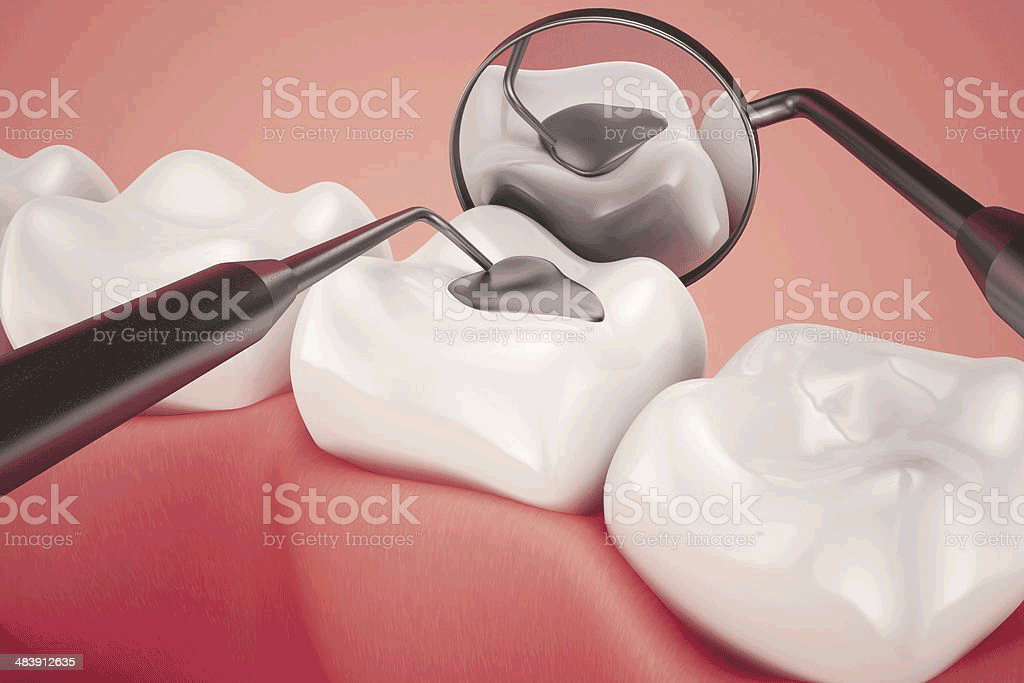
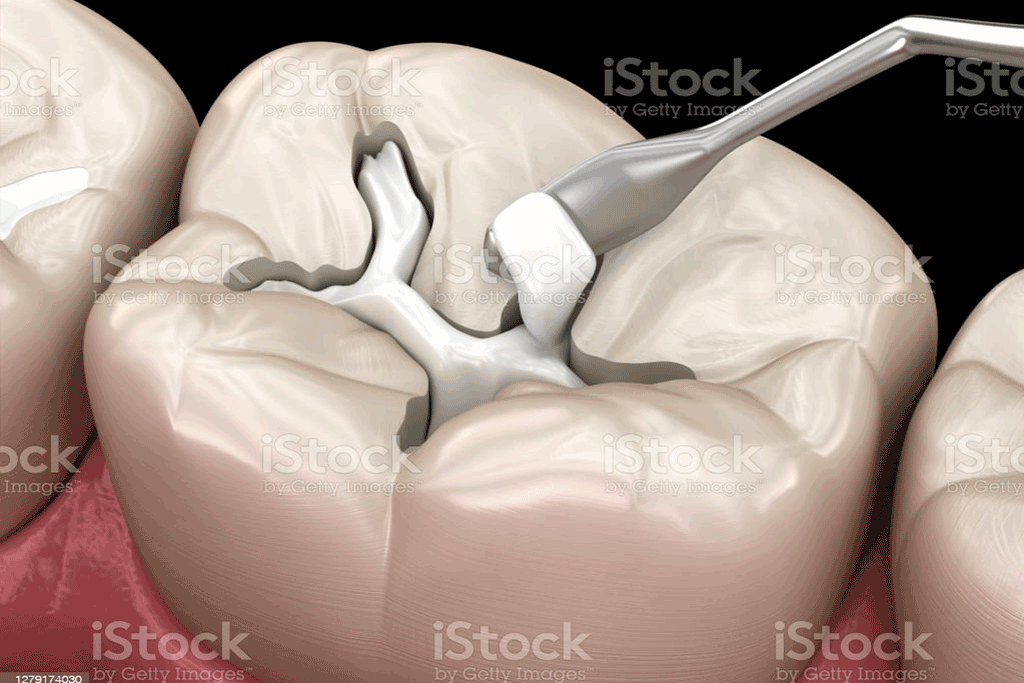
i) If you often wake up with jaw pain, earaches, or headaches, or if you find yourself clenching or grinding your teeth, you may have a common condition called bruxism.
There is an easy, non-invasive treatment for bruxism: nightguards. Nightguards are an easy way to prevent the wear and damage that teeth-grinding causes over time. Custom-made by your dentist from soft material to fit your teeth, a nightguard is inserted over your top or/and bottom arch and prevents contact with the opposing teeth.
Choosing the right mouthguard is essential. There are three basic types of mouthguards: the pre-made nightguard, the “boil-and-bite” nightguard, and a custom-made nightguard from our office. When you choose a nightguard, be sure to pick one that is tear-resistant, comfortable and well fitted for your mouth, easy to keep clean, and does not prevent you from breathing properly. A nightguard created in our office will fit all these requirements, as it will be custom-made just for your teeth.
Schedule Your Appointment Online
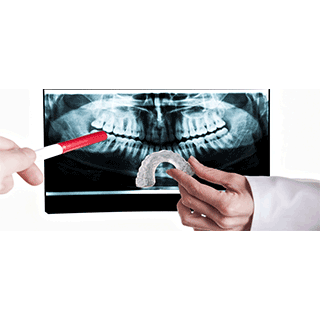
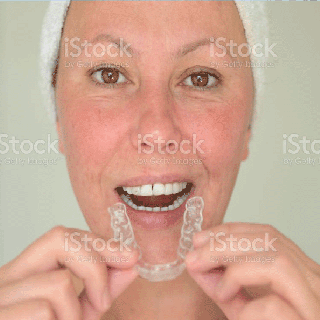
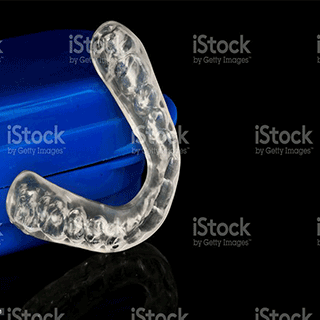
Oral health touches every aspect of our lives, but is often taken for granted. Your mouth is a window into the health of your body. It can show signs of nutritional deficiencies or general infection. Systemic diseases, those that affect the entire body, may first become apparent because of mouth lesions or other oral problems.
Cavities remain the most prevalent chronic disease of childhood. Some 100 million Americans fail to see a dentist each year, even though regular dental examinations and good oral hygiene can prevent most dental diseases. Many people believe that they need to see a dentist only if they are in pain or think something is wrong, but regular dental visits can contribute to a lifetime of good oral health. If you are experiencing dental pain, don’t put off seeing a dentist. With dentistry’s many advances, diagnosis and treatment are more sophisticated and comfortable than ever.
You can practice good oral hygiene by always brushing your teeth twice a day with a fluoride toothpaste, cleaning between your teeth once a day with floss or another interdental cleaner, replacing your toothbrush every three or four months and by eating a balanced diet and limiting between-meal snacks. Don’t forget to schedule regular dental check-ups to keep your smile, and yourself, healthy. Schedule Your Appointment Online
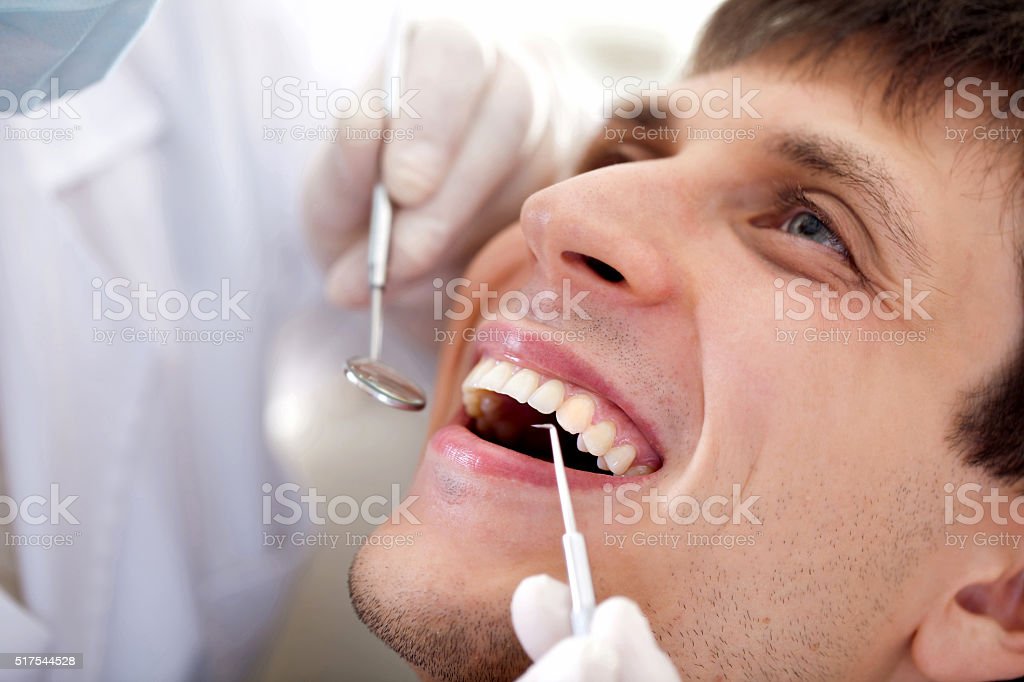
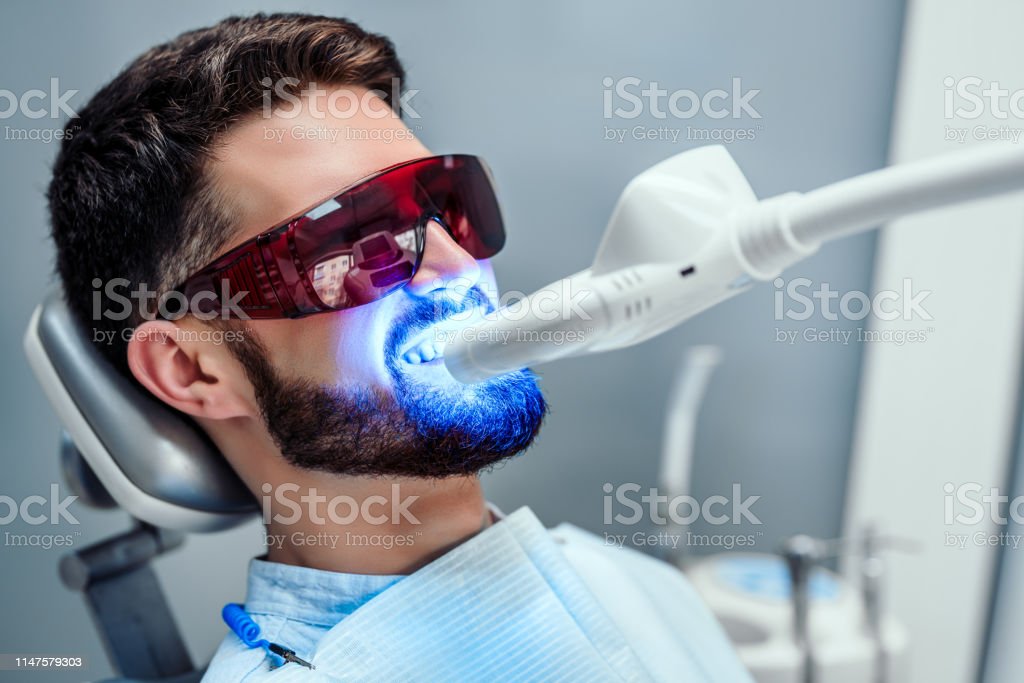

If you have a severely damaged, decaying tooth or a serious tooth infection (abscess), your dentist may recommend a root canal treatment. Root canals are used to repair and save your tooth instead of removing it.
What’s Involved in Root Canal Repair?
The pulp is soft tissue inside your tooth that contains nerves, blood vessels and provides nourishment for your tooth. It can become infected if you have:
❖ A deep cavity
❖ Repeated dental procedures that disturb this tissue
❖ A cracked or fractured tooth
❖ Injury to the tooth (even if there’s not a visible crack or chip)
If untreated, the tissues around the root of your tooth can become infected. When this happens, you will often feel pain and swelling and an abscess may form inside the tooth and/or in the bone around the end of the root of the tooth. An infection can also put you at risk of losing your tooth completely because bacteria can damage the bone that keeps your tooth connected to your jaw. Schedule Your Appointment Online
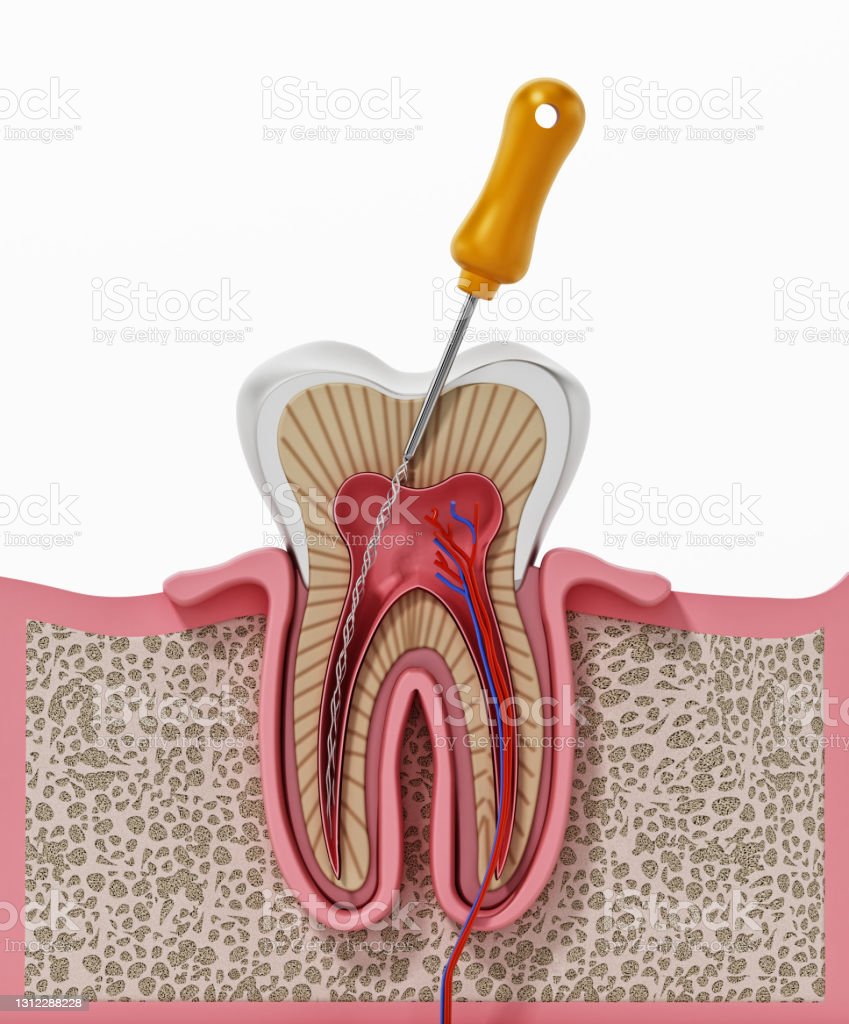
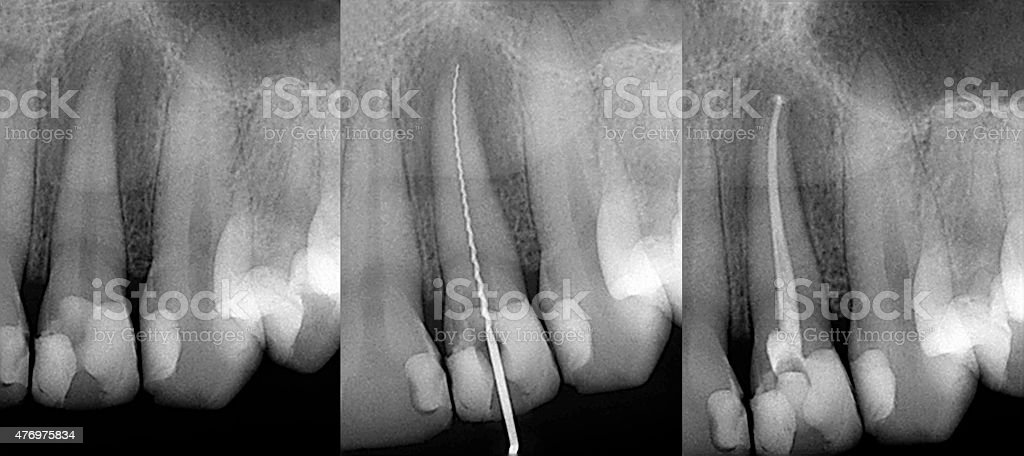
Scaling and root planing is a deep cleaning below the gumline used to treat gum disease.Gum disease is caused by a sticky film of bacteria called plaque. Plaque is always forming on your teeth, but if they aren’t cleaned well, the bacteria in plaque can cause your gums to become inflamed. When this happens, your gums will pull away from your teeth and form spaces called pockets. Plaque then gets trapped in these pockets and cannot be removed with regular brushing. If untreated, gum disease could lead to bone and tooth loss.
If gum disease is caught early and hasn’t damaged the structures below the gum line, a professional cleaning should do. If the pockets between your gums and teeth are too deep, however, scaling and root planing may be needed.
This deep cleaning has two parts. Scaling is when your dentist removes all the plaque and tartar (hardened plaque) above and below the gumline, making sure to clean all the way down to the bottom of the pocket. Your dentist will then begin root planing, smoothing out your teeth roots to help your gums reattach to your teeth. Scaling and root planing may take more than one visit to complete and may require a local anesthetic. Schedule Your Appointment Online
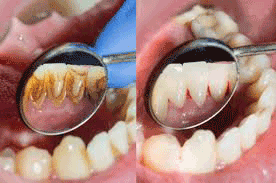
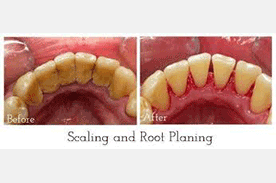
Dentures are removable appliances that can replace missing teeth and help restore your smile. If you’ve lost all of your natural teeth, whether from gum disease, tooth decay or injury, replacing missing teeth will benefit your appearance and your health. That’s because dentures make it easier to eat and speak better than you could without teeth—things that people often take for granted.
When you lose all of your teeth, facial muscles can sag, making you look older. Dentures can help fill out the appearance of your face and profile. They can be made to closely resemble your natural teeth so that your appearance does not change much. Dentures may even improve the look of your smile.
Types of dentures:
❖ Conventional This full removable denture is made and placed in your mouth after the remaining teeth are removed and tissues have healed, which may take several months.
❖ Immediate This removable denture is inserted on the same day that the remaining teeth are removed. Your dentist will take measurements and make models of your jaw during a preliminary visit. You don’t have to be without teeth during the healing period, but may need to have the denture relined or remade after your jaw has healed.
❖ Overdenture Sometimes some of your teeth can be saved to preserve your jawbone and provide stability and support for the denture. An overdenture fits over a small number of remaining natural teeth after they have been prepared by your dentist. Implants can serve the same function, too. Schedule Your Appointment Online
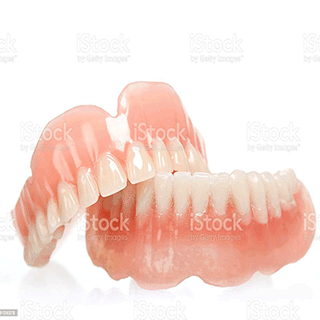
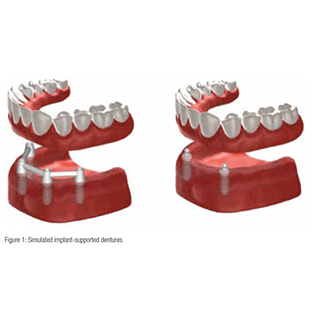
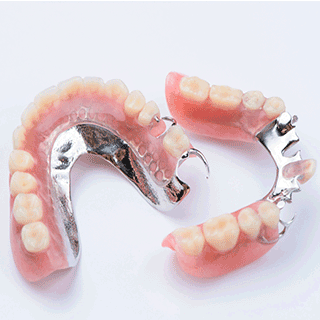
Cosmetic bonding is a process where the dentist attaches or “bonds” materials directly to your tooth in order to change the color and shape. The natural tooth enamel is then fused together with bonding materials such as porcelain and resins to create a strong structure that still feels like your original tooth.
While it can be used for different purposes, according to the American Academy of Cosmetic Dentistry, tooth bonding is most useful for repairing chipped teeth. That’s because the bonding materials and porcelain used are natural in color, and allows for a finished product that closely matches your surrounding teeth. Schedule Your Appointment Online
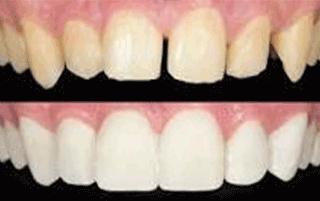
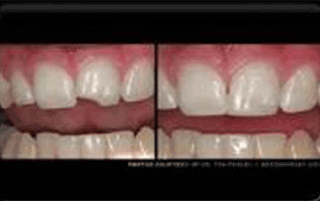
Brushing and flossing are the best ways to help prevent cavities, but it’s not always easy to clean every nook and cranny of your teeth – especially those back teeth you use to chew (called molars). Molars are rough, uneven and a favorite place for leftover food and cavity-causing bacteria to hide.
Still, there’s another safety net to help keep those teeth clean. It’s called a sealant, and it is a thin, protective coating (made from plastic or other dental materials) that adheres to the chewing surface of your back teeth. They’re no substitute for brushing and flossing, but they can keep cavities from forming and may even stop early stages of decay from becoming a full-blown cavity.
In fact, sealants have been shown to reduce the risk of decay by nearly 80% in molars. This is especially important when it comes to your child’s dental health. In October 2016, the Centers for Disease Control released a report on the importance of sealants for school-aged children, of which only 43% of children ages 6-11 have. According to the CDC, “school-age children without sealants have almost three times more cavities than children with sealants.” Schedule Your Appointment Online
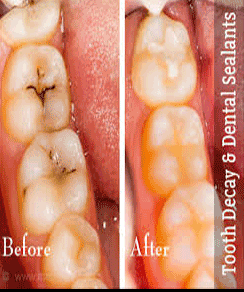
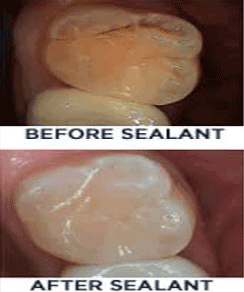
If you are self-conscious because you have missing teeth, wear dentures that are uncomfortable or don’t want to have good tooth structure removed to make a bridge, talk to your dentist to see if dental implants are an option for you.
Dental implants are a popular and effective way to replace missing teeth and are designed to blend in with your other teeth. They are an excellent long-term option for restoring your smile. In fact, the development and use of implants is one of the biggest advances in dentistry in the past 40 years. Dental implants are made up of titanium and other materials that are compatible with the human body. They are posts that are surgically placed in the upper or lower jaw, where they function as a sturdy anchor for replacement teeth.
If you are interested in dental implants, it’s a good idea to discuss it carefully with your dentist first. If you are in good general health this treatment may be an option for you. In fact, your health is more of a factor than your age. You may be medically evaluated by a physician before any implant surgery is scheduled. Schedule Your Appointment Online
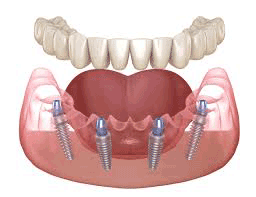
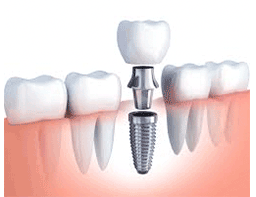
The Invisalign treatment consists of a series of clear, snap-on, custom fit, removable mouth trays that apply a controlled amount of force to your teeth, causing them to gently shift.The system provides the same beautiful results as traditional braces, but since the trays are made of clear plastic, they are virtually invisible. In addition, because Invisalign trays are removable, they can be taken out while eating, drinking, brushing and flossing.
The Invisalign System works begins by first creating a series of trays that will each moving your teeth gradually until the end result is achieved. Every 7 to 10 days, you will switch trays. Throughout the process, you will visit your dentist every 10 to 12 weeks to ensure treatment is progressing as planned. Once your treatment is complete, you will wear a clear retainer to ensure your new smile stays in place.
As with all orthodontic appliances, the cost of Invisalign varies according to the complexity of the case. However,in our office Invisalign is very comparably priced to traditional braces. Insurance policies generally cover Invisalign to the same extent that they cover traditional braces. Schedule your complimentary consultation with us today.
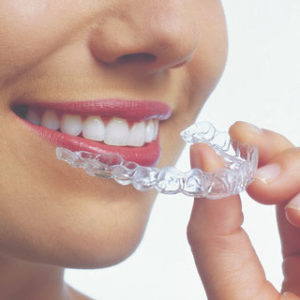
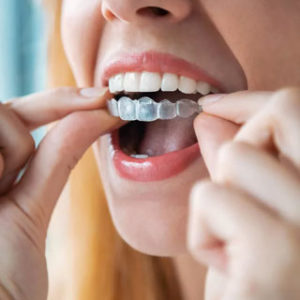
The temporomandibular joints, called TMJ, are the joints and jaw muscles that make it possible to open and close your mouth. Located on each side of the head, your TMJ work together when you chew, speak or swallow and include muscles and ligaments as well as the jaw bone. They also control the lower jaw (mandible) as it moves forward, backward and side to side.
Each TMJ has a disc between the ball and socket. The disc cushions the load while enabling the jaw to open widely and rotate or glide. Any problem that prevents this complex system of muscles, ligaments, discs and bones from working properly may result in a painful TMJ disorder.
Diagnosis is an important step before treatment. Part of the dental examination includes checking the joints and muscles for tenderness, clicking, popping or difficulty moving.
If necessary for your symptoms, the following treatments may be advised:
❖ exercises to strengthen your jaw muscles
❖ medications prescribed by your dentist; for example, muscle relaxants, analgesics, anti-anxiety drugs or anti-inflammatory medications
❖ a night guard or bite plate to decrease clenching or grinding of teeth.
In some cases, your dentist may recommend fixing an uneven bite by adjusting or reshaping some teeth. Orthodontic treatment may also be recommended. Your dentist can suggest the most appropriate therapy based on the suspected cause. Schedule Your Appointment Online

Infection control procedures are actions taken in health care settings to prevent the spread of disease. The Centers for Disease Control and Prevention has recommendations for dental office infection control. Your dentist cares about your safety and works hard to prevent the spread of infection. Before you enter the examining room, all surfaces, such as the dental chair, dental light, drawer handles and countertops, have been cleaned and disinfected. Offices may cover some equipment with protective covers, which are replaced after each patient.
Non-disposable items like the dental tools are cleaned and sterilized between patients. Disposable dental tools and needles are never reused. Infection control precautions also require all dental staff involved in patient care to use appropriate protective equipment such as gloves, masks, gowns and eyewear when needed. After each patient, disposable gloves and masks are thrown away. Before seeing the next patient, everyone on the treatment team washes their hands and put on a new pair of gloves.
Your well-being is important to your dentist and dental staff. That’s why infection control procedures are in place at your dental office. Schedule Your Appointment Online
A severe toothache can take over your life. Highly trained endodontists (dental specialists) repair tissues inside the tooth in intricate ways. They diagnose and treat complex causes of tooth pain, such as tooth abscess (infection). Endodontists perform root canal treatments and other procedures to relieve pain. They work to save your natural tooth.
An endodontist is a highly trained dental specialist. Endodontists focus on caring for complex tooth problems that primarily affect the tooth pulp (the inside of teeth). They use advanced techniques to treat the dental pulp and root tissues. These specialists focus on relieving your toothache while saving your natural tooth, whenever possible. Schedule Your Appointment Online
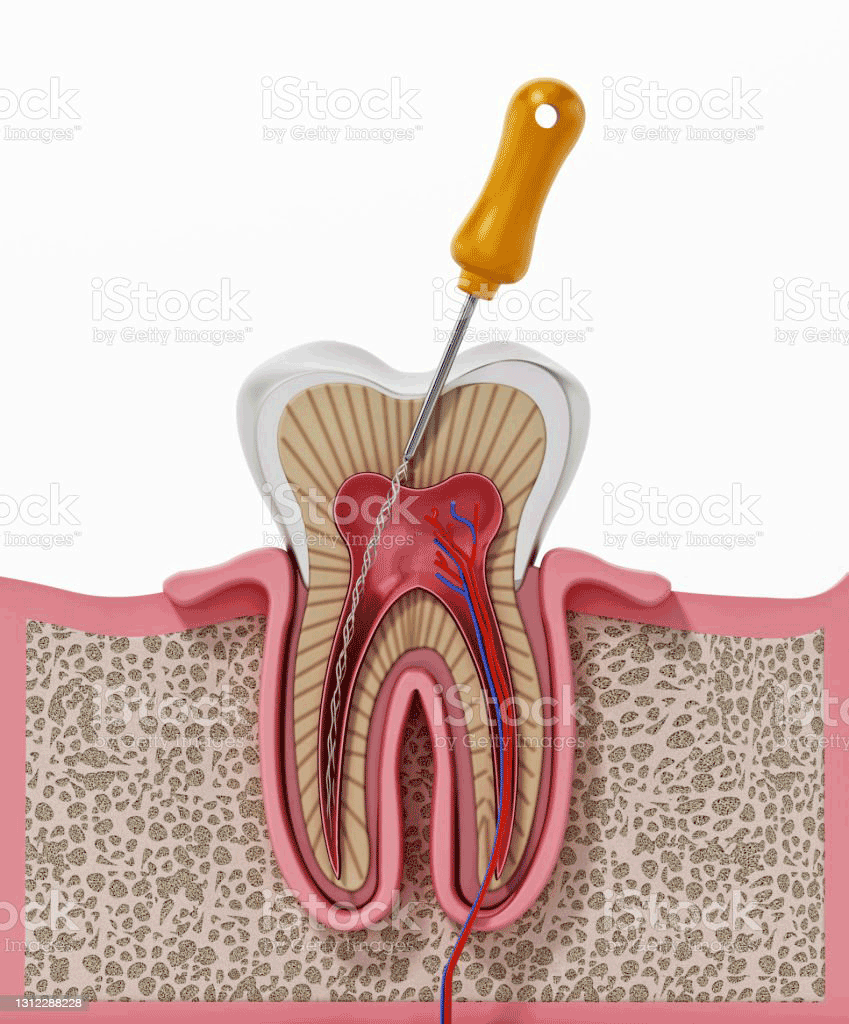
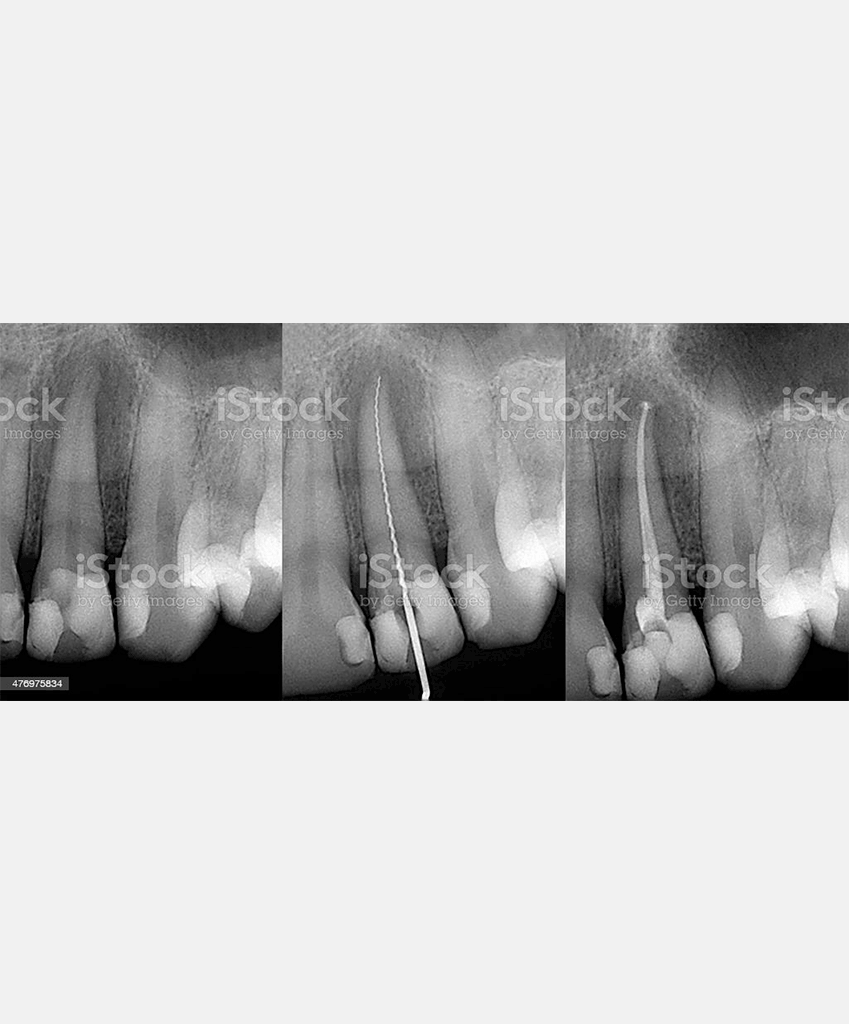
Brushing and flossing are everyday ways to keep your teeth bright, white and healthy. Still, if you might feel like your smile is lacking some sparkle or is more yellow than it used to be, you’re not alone. When the American Academy of Cosmetic Dentistry asked people what they’d most like to improve about their smile, the most common response was whiter teeth. The American Association of Orthodontists also found that nearly 90% of patients requested tooth whitening.
Does Whitening Work on All Teeth? No, which is why it’s important to talk to your dentist before deciding to whiten your teeth, as whiteners may not correct all types of discoloration. For example, yellow teeth will probably bleach well, brown teeth may not respond as well and teeth with gray tones may not bleach at all. Whitening will not work on caps, veneers, crowns or fillings. It also won’t be effective if your tooth discoloration is caused by medications or a tooth injury. Our team will explain to you what the ultimate goal is to achieve the optimum level of natural whiteness for your looks and complexion, however, it is important to note that home whitening is designed to whiten the natural tooth structure alone. If you have crowns or veneers your treatment will be assessed on an individual basis to ensure that we create a treatment plan that fully meets your needs. Schedule Your Appointment Online
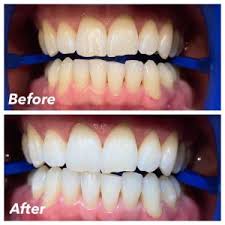
Veneers are thin, custom-made shells crafted of tooth-colored materials designed to cover the front side of teeth. They are an option for correcting stained, chipped, decayed or crooked teeth. Veneers are made by a dental technician, usually in a dental lab, working from a model provided by your dentist. Placing veneers is usually an irreversible process, because it’s necessary to remove a small amount of enamel from your tooth to accommodate the shell. Your dentist may recommend that you avoid some foods and beverages that may stain or discolor your veneers such as coffee, tea or red wine. Sometimes a veneer might chip or fracture. But for many people the results are more than worth it. Schedule Your Appointment Online

Dental Crowns are a tooth-shaped cap which is placed on the tooth to restore the shape, size, and appearance of the tooth damaged due to accident, trauma or decay. They are the best alternative to the natural teeth and perform all the functions of a healthy tooth and even look like one.
A crown can help strengthen a tooth with a large filling when there isn’t enough tooth remaining to hold the filling. Crowns can also be used to attach bridges, protect a weak tooth from breaking or restore one that’s already broken. A crown is a good way to cover teeth that are discolored or badly shaped. It’s also used to cover a dental implant.
If your dentist recommends a crown, it is probably to correct one of these conditions. Your dentist’s primary concern, like yours, is helping you keep your teeth healthy and your smile bright. Schedule Your Appointment Online
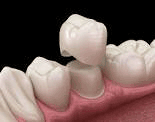
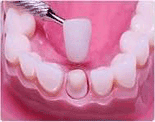
Preventive dentistry is dental care that helps maintain good oral health. It’s a combination of regular dental check-ups along with developing good habits like brushing and flossing. Taking care of your teeth starts early in childhood and extends throughout the course of your life. But it goes beyond that. Good oral health can impact your general health, as well.
Much of your preventive dental care starts with you. Developing healthy dental habits early in life can help reduce cavities, gum disease, and gingivitis. Here are the basics of good oral health:
❖ Brush your teeth at least 2 times a day—usually morning and night—using a soft bristled brush and a fluoride toothpaste. Your dentist can recommend the best toothbrush and toothpaste for you. They can also instruct you on how to properly brush.
❖ Floss daily to get food that’s stuck between teeth before it turns to plaque.
❖ Use a mouthwash to rinse out food particles after flossing.
❖ Avoid acidic foods that can harm tooth enamel.
❖ Be cautious with hard foods, like some candies, foods with bones, seeds, or pits that could damage or chip teeth.
❖ Don’t smoke or use tobacco products—these can lead to cancer and other dental problems.
❖ Use a mouth guard when participating in certain sports.
❖ If you grind your teeth at night, ask your dentist for a nighttime mouth guard to help reduce gum recession.
Preventive dentistry services may include:
❖ Regular oral exams, usually every 6 months
❖ Teeth cleaning (prophylaxis)
❖ Routine X-rays
Regular preventive dental exams provide the following benefits to your oral health:
❖ Lowers your risk for developing tooth decay, gum disease, and more serious dental problems.
❖ Helps promote good oral hygiene habits, such as brushing your teeth at least twice a day and flossing.
❖ Early identification of dental problems may help minimize treatment and cost.
❖ Enables your dentist to do a full exam of your mouth, jaw, neck, etc. to identify any related problems.
❖ Helps reduce dental problems related to some chronic medical conditions. Diabetes, osteoporosis, certain cancers, and eating disorders can all have an effect on dental and oral health. For people with chronic conditions, regular preventive dental care is an important part of whole person health.
Preventive dentistry for kids can help identify problems early on in your child’s life before dental problems become worse and often more costly. Services typically include the following:
❖ Promote good dental habits, including brushing and flossing, guidance on thumb sucking, as well as advice on eating habits that help improve dental health.
❖ Regular teeth cleanings and oral exams, usually every 6 months
❖ Fluoride application (usually up to a certain age)
❖ Sealants
❖ Routine X-rays to help track jaw and teeth development
❖ Fitting athletic mouth guards
❖ Referrals to orthodontists if teeth are crooked
❖ Referrals to other dental specialists as needed
❖ Helping identify related health issues that may impact a child’s dental health
Schedule Your Appointment Online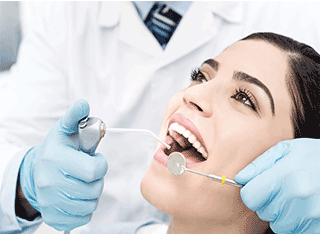
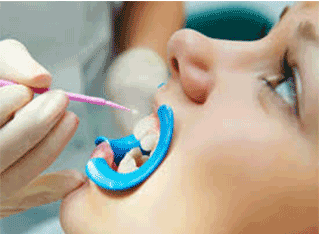
Start Your Orthodontics Consult Now

















“I would recommend to anyone. The courteous
staff of Dr. Dental is very knowledgeable and skillful.”
Donald Sabol
See What Our Patients Are Saying!
William Cote
Had partials made for top to bottom was very well. Took in care of and will recommend many to come here. Dr Mandela was exceptional great. No pain and I am very pleased with my outcome.
- Manchester, CT
Donald Sabol
I would recommend to anyone. The courteous staff of Dr. dental is very knowledgeable and skillful.
- Chelsea, MA
Micheal Basta
Excellent Services.
- Manchester, NH
Jasmine Weygant
Both of my daughters are patients in your office and we are all very pleased with our treatment. The staff are very kind and welcoming. We look forward to coming back. Thank you for accepting us as patients of Dr. Dental.
- Clifton, NJ
Destinee Silva
I Love Dr Dental. I don’t know what I would do if I never met you all. Love you all.
- Waterbury, CT
Patrille Pruter
Everyone was very nice. Dr Patel and Linda were both friendly and answered my questions. The lady who took my X-ray was very good. Would come back.
- Lowell, MA
Mateo Maria
Love the services. Open Communication. Well treated. Customer service is a plus. We liked Dr Mandela, Linda and also Jasmine for people to communicate with. Looking forward to continue coming to this office and also i will recommend other family members and friends to come here and visit.
- Edison, NJ
David Johnson
My son loves coming here. He says all the staff are so nice and that he really likes doctor Shobia.
- Hackensack, NJ
June Fischer
I hadn’t been to the dentist in 10 years so I was really scared when I came in and the staff and doctor Shobia were great! I will definitely come back!
- Bridgeport, CT
Charles Lavigne
1st Visit went well. Staff was thorough & Efficient, friendly and Professional.
- Boston, MA
Tonya Stancil
Wonderful Service!
- Lyndhurst, NJ
Susan Kasedde
Always such wonderful personal care. We come here as a family and would never change.
- Norwalk, CT
